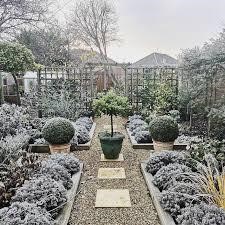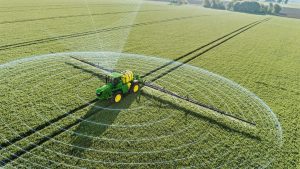
Although the clover is considered a symbol of good luck if one is found with four leaves, the truth is that it is often a real headache for people who have a garden with a lawn at home and want to keep it in perfect condition. And it is that clover is one of the most typical invasive species of the lawn. And that’s not all because, in addition, it reproduces very easily and, in a few days, there can be large areas of clovers on the lawn. As always, the best weapon is prevention. But what to do when it has already appeared? How to remove clover from the lawn? Can its rapid reproduction be avoided?
Tips to prevent the appearance of clovers on the lawn
As we have previously commented, clover is one of the main invasive species of lawns. Although it invades it, the truth is that its presence has advantages and disadvantages:
- Pros: Clover benefits the grass around them by providing nitrogen to the soil and attracting pollinators like bees. In addition, with its presence, weeds are prevented from settling in the lawn.
- Against: despite the benefits of clover, the truth is that it also has fewer positive points. And it is that, by spreading quickly, it is possible that it suffocates the grass and that it ends up disappearing. Another aspect to take into account is that, normally, their green color does not match that of the grass or its height or texture, so they can make the grass look uneven and, therefore, less cared for.
To avoid these problems, it is best to prevent them. And, for this, there is nothing like taking good care of the lawn throughout the year because any lack of irrigation, clear area without grass or with less grass or its weakening, is used by the clover to make its appearance and spread.
But, above all, you have to pay attention to the state of the soil. And it is that a lack of fertilizer, specifically nitrogen, favors the appearance of clovers, which are excellent fixers of environmental nitrogen. Not surprisingly, it is a legume.
Remove Clover From Lawns With Chemicals
One of the ways to eliminate clover from the lawn is to use chemicals such as those used to prevent the growth of weeds, which must be combined with the prevention of its appearance. However, not all types of herbicides are worth it because clover has a series of peculiarities, so these aspects must be taken into account when choosing it:
- There are different classes or types of clover, not all of which are easy to eliminate.
- Lawn herbicides do not usually kill clover. They are more intended for dicotyledons or species that have rounded leaves. However, this type of product can help eradicate some varieties of clover or, at least, weaken it so that it does not spread so quickly.
- Broadleaf herbicides may be more effective in killing patches of clover in the garden. In addition, it has the advantage that it is not so harmful to the lawn. It also makes it easier for affected areas to be quickly planted with new grass seed so there are no gaps without grass.
When to apply herbicide to kill clover
Once the guidelines for choosing the herbicide are clear, the next thing you should know is how and when to apply it:
- The best time to apply the herbicide is to do it in the time when the plants grow the most, such as spring and autumn.
- It is not good that you apply the herbicide on days when it is very windy or rainy because it reduces its effectiveness.
- The herbicide also does not have to be used on days with higher solar radiation or heat because it could cause damage to the lawn.
- Precisely because of the damage it can cause both to the lawn and to other plants or flowers in the garden, it is important to apply it only to the grass and carefully so that it does not spread to other species.
- Its application is simple and just consists of spraying the grass with it. Depending on the herbicide, there may be some variations, so it is important to read its instructions for use, especially in relation to the amount to mix with water if necessary.
- In addition, safety regulations must be followed in its application, since it is advisable that you always protect yourself with gloves, a mask, and glasses -at least-so that it does not splash and cause damage. Once you have finished, it is advisable to wash all the utensils that you have used to apply it well.
Natural remedies to eliminate clover from the lawn
In addition to using herbicides or chemical products that can be purchased at florists and specialized garden or nursery stores, there are also some natural remedies that allow you to eliminate clover from your lawn:
- Natural herbicide: a natural herbicide can be prepared at home. In reality, it is nothing more than spraying white vinegar on the areas of the lawn where there is some clover or it is intuited that it is beginning to appear. Its application has to be done with caution because the vinegar kills the herbs so it could cause conditions in other plants that are accidentally splashed. It is also possible to cause damage to the turf itself, but it can be reseeded quickly.
- Mowing the lawn: after mowing the lawn or pruning garden plants, it is recommended to leave the remains on the ground. These residues attract earthworms, which are responsible for naturally enriching the soil, thus preventing clover from making its appearance due to the lack of nitrates.





